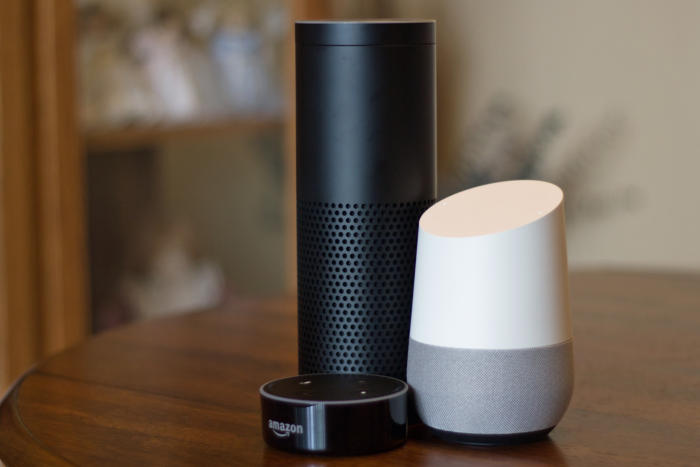"Yandex" develops a "smart" column, speaking in Russian

Amazon Echo, Echo Dot and Google Home
Russian Yandex has joined the number of companies that are developing home smart speakers that serve as a home intelligent agent connected to the Internet. Such devices can support a conversation with a person, search the Internet, answer questions, execute commands (increase / decrease volume, set an alarm, etc.) and perform various actions — play music on demand, read audio books, report a weather forecast, inform about traffic jams in the city, etc.
As agents of AI, such devices can be assigned individual names. For example, the Amazon Echo clever column by default responds to Alex's name. Similar devices are produced by Google (Google Home columns). But all foreign gadgets have a major drawback - they do not recognize the Russian language. Yandex intends to correct this deficiency, Vedomosti writes .
An employee of a large media company and two employees of major record labels told journalists about the Yandex project, one of whom had learned about it from Yandex employees. A company spokesman confirmed that such an experiment is really underway: “We are confident that the future is behind the voice interface, we have acquired the necessary technologies: speech recognition and synthesis, advanced dialogue systems, artificial intelligence,” he said. In fact, Yandex has been engaged in such technologies for many years. In May 2017, testing of Alice’s voice assistant for Android began, which is available in the Yandex Beta software suite. It is curious that "Alice" even knows how to joke, answering questions.
The working title of the column is Artificial Intelligence Speaker. Probably, the creators will try as much as possible to repeat the functionality of foreign analogues, including searching the Internet, ordering goods in the store, informing about traffic jams and weather. It is quite possible that the speaker will be integrated with the Yandex.Music service and will also be able to play music at the user's command.
Experts believe that the market of voice assistants is a very promising niche, and it is not yet full on the Russian market. The American example shows that such gadgets are in great demand among the population. According to Strategy Analytics, in the IV quarter. In 2016, global sales of smart speakers increased by 600% and reached 4.2 million units. Amazon has 88% of the market, Google has 10%.
In addition, with the help of such devices, a large Internet company has the ability to hardware-bind a user to its services.
In addition to Yandex, Samsung ( a Vega device based on Bixby digital assistant ) and Alibaba are working on creating smart speakers with a voice interface. It is unlikely that their gadgets will be able to talk in Russian.
All Articles